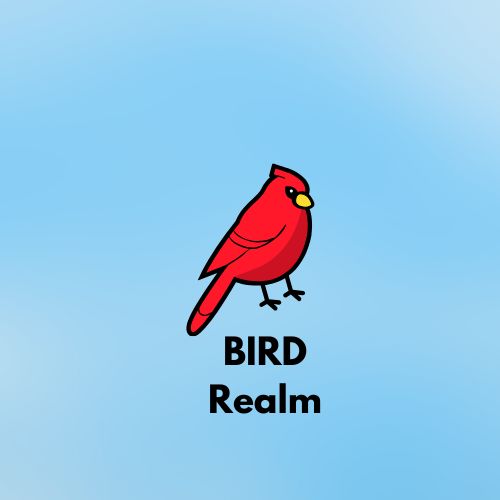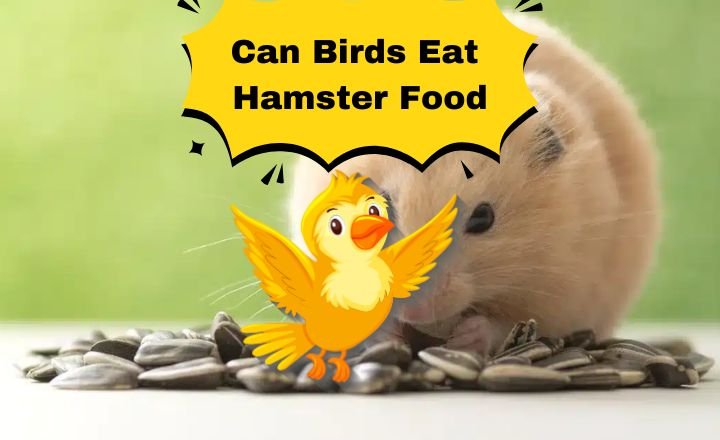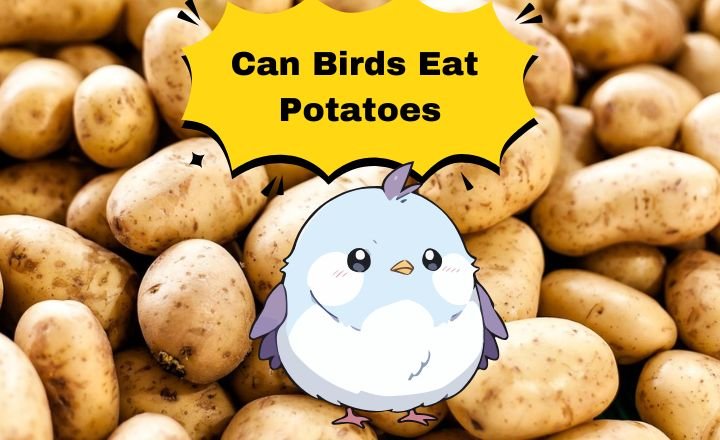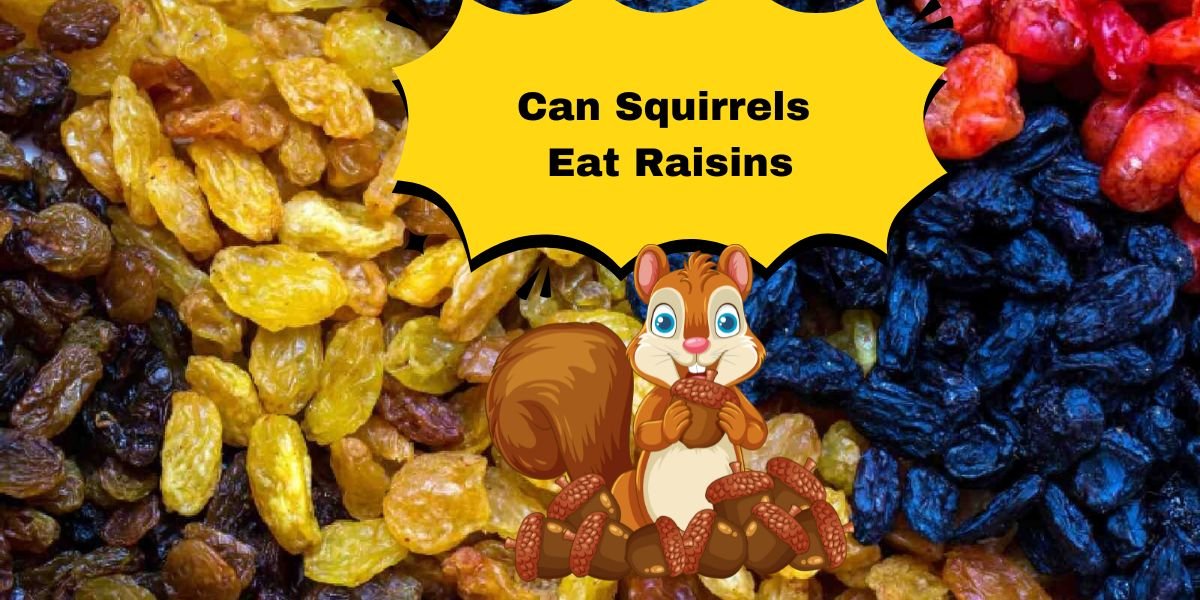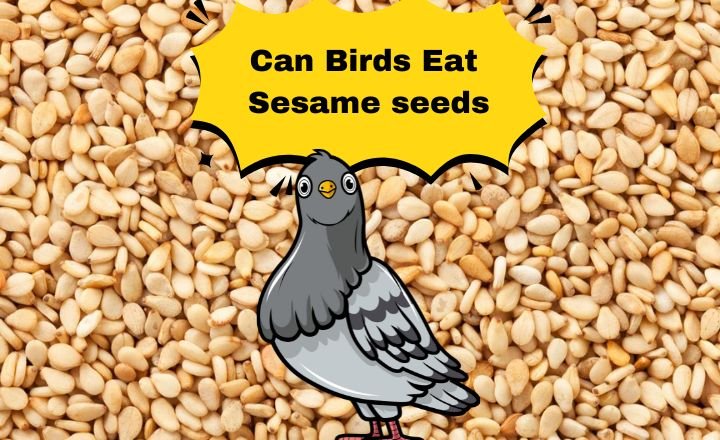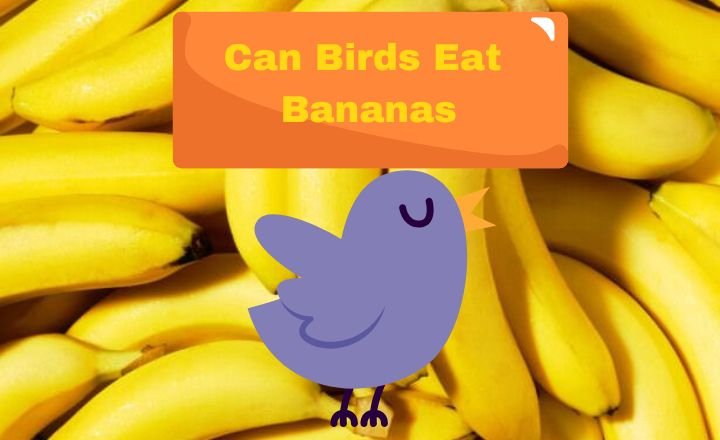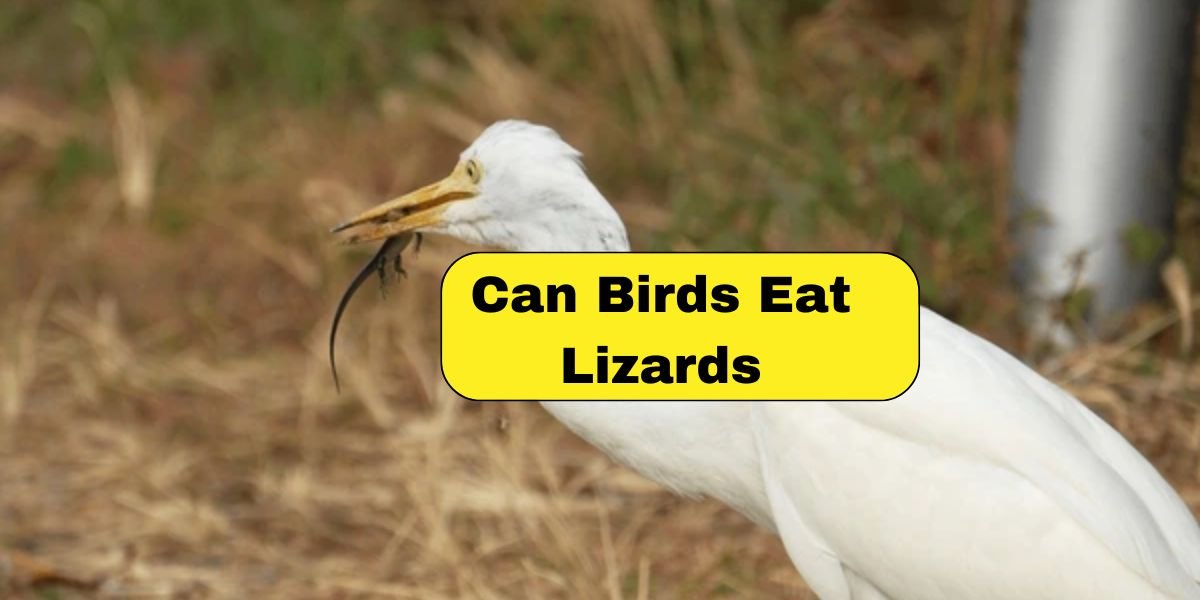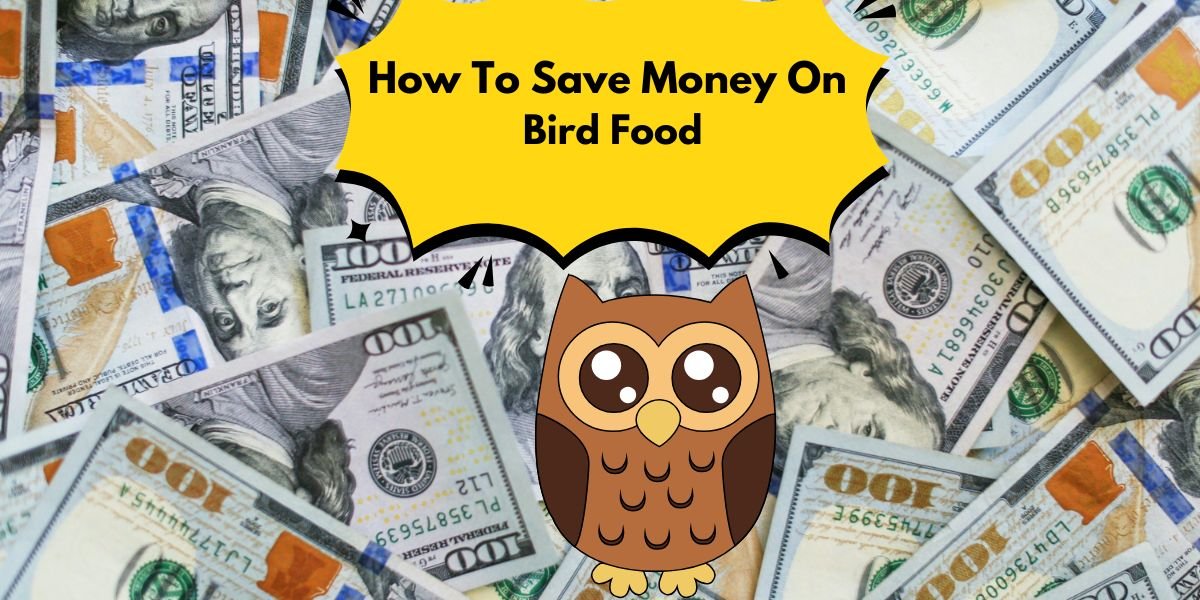Can Birds Eat Hamster Food?
When you think of a bird’s diet, seeds, fruits, and insects likely come to mind. But what if I told you that some feathered friends might be eyeing the contents of your hamster’s food bowl with curiosity.
The question: Can birds eat hamster food? It may initially seem quirky or even amusing, but it opens up a fascinating dialogue about nutrition and dietary overlaps across species. As pet owners increasingly explore cost-effective ways to nourish their avian companions, understanding the implications of offering unconventional foods is paramount.
In this guide, we’ll dive into the nutritional components found in hamster food and assess whether these ingredients can safely benefit our winged pets. From protein sources to fiber content, we’ll unpack the potential risks and rewards of sharing pantry staples from one pet’s menu with another.
So grab a seat and prepare to discover if your beloved birds can partake in what their furry counterparts feast on—because the world of animal diets is more interconnected than you might think!
Nutritional Considerations for Birds and Hamster Food
Birds often have delicate digestive systems tailored to their natural diets; a sudden introduction of hamster food could disrupt this balance. Moreover, some ingredients found in hamster mixes—such as high-fat seeds—may lead to obesity or fatty liver disease if consumed frequently by birds. To keep your feathered friend thriving.
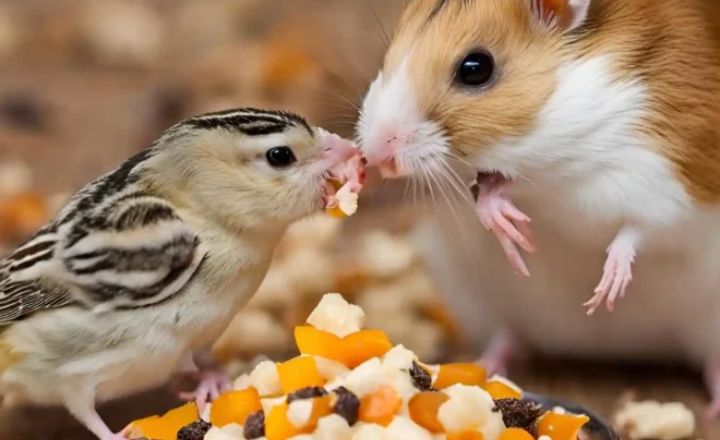
It’s crucial to provide them with foods specifically crafted for avian consumption that cater to their unique metabolic demands. The ingredients in commercial hamster food can vary between brands, but they typically include a mix of the following:
- Grains and Cereals
- Seeds and Nuts
- Pellets
- Vegetables and Fruits
- Proteins
- Vitamins and Minerals
- Fiber
Grains and Cereals
Birds can indeed eat certain types of hamster food, provided it contains healthy grains like oats and barley. This unexpected dietary overlap highlights the nutritional versatility of grains, which are packed with essential vitamins and minerals that support various life forms.
The inclusion of wholesome seeds, nuts, and dried fruits within some hamster blends can further appeal to birds, providing them with a varied diet that mimics their natural foraging instincts.
Seeds and Nuts
Seeds and nuts are not only a delightful snack for humans but also play an integral role in the diets of many animals, including birds. These nutrient-dense morsels provide essential fatty acids, protein, and vitamins that support avian health.
It’s important to note that not all seeds are appropriate for every bird species; some may require specific nutrients or have sensitivities to certain types of seeds. The fascinating diversity among seed-eaters means their dietary needs can vary significantly, thus highlighting the need for varied offerings when determining suitable food sources.
Pellets
Opting for specially formulated bird pellets ensures that your pet receives all the necessary macro and micronutrients in one tidy package. Many brands offer species-specific options, tailoring nutrient profiles to suit varied avian needs—from budgerigars to macaws.
Integrating appropriate pellets into your bird’s diet not only simplifies meal preparation but also minimizes the risk of accidental deficiencies caused by dietary imbalances found in inappropriate foods like hamster feed.
Vegetables and Fruits
Exploring the diversity of colors among vegetables and fruits can offer insights into their nutritional profiles. The brighter the color, the more nutrients they often contain—think deep greens like spinach or bright reds like bell peppers. But it’s not just about human consumption; many people wonder if birds can eat hamster food when seeking additional protein sources.
Just as certain human foods can enhance workplace productivity and well-being for those who consume them thoughtfully, incorporating a variety of plant-based foods into your diet can provide unexpected benefits that extend beyond immediate physical attributes to include improved mood and vitality.
Proteins
Proteins are the essential building blocks of life, playing a pivotal role not just in human health, but across the animal kingdom. For pet owners curious about their feathered friends’ diets, it’s fascinating to consider birds metabolize proteins differently than mammals. While hamster food typically contains higher levels of protein derived from grains and seeds.
This composition may not be ideal for avian species. Birds require specific amino acids that differ from those present in hamster formulations; some essential ones like methionine and lysine might be lacking.
Vitamins and Minerals
Hamster food is formulated to support rodent-specific needs—such as promoting healthy fur and supporting reproduction—but it lacks certain vitamins that are crucial for avian health. For instance, vitamin D and calcium play vital roles in a bird’s bone development and egg production, highlighting why simply feeding them hamster pellets may not meet their specific dietary demands.
Fiber
A diet rich in fiber can aid in preventing obesity and digestive disorders among avian species. Surprisingly, incorporating certain hamster foods into a bird’s diet can bolster their fiber intake due to the inclusion of whole grains, seeds, and vegetables—though this should be done judiciously.
Serving Hamster Food to Birds
The idea of serving hamster food might raise some eyebrows. While it may not be the conventional choice, certain elements in hamster food can offer nutritious benefits to birds. The primary components of many rodent diets include seeds, grains, and dried fruits—ingredients that are quite appealing to various bird species.
These items can serve as an occasional treat or enrichment activity, allowing birds to explore different textures and flavors beyond their typical fare.
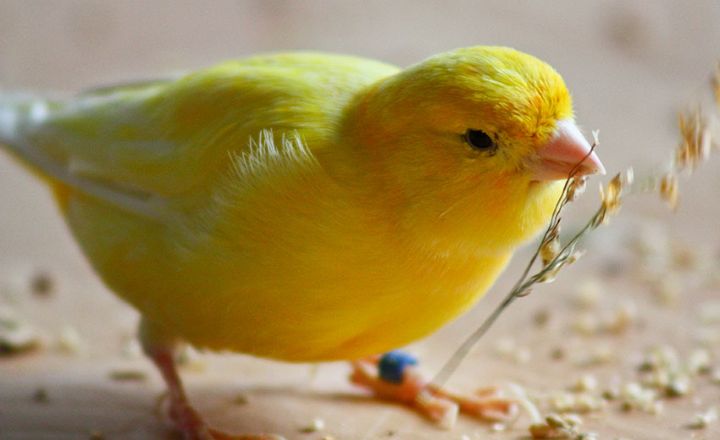
Birds That Might Eat Hamster Food
Some birds might eat the hamster food below.
- Sparrows and Finches
- Budgerigars (Budgies)
- Doves and Pigeons
Sparrows and Finches
Many people may wonder about the dietary preferences of these popular backyard birds—specifically, whether they’re suitable candidates for unconventional feeding options like hamster food.
While sparrows and finches predominantly thrive on seeds, grains, fruits, and insects in their natural diets, introducing hamster food might not be advisable due to its high protein content meant for small mammals rather than birds. Such dietary mismatches highlight the importance of selecting appropriate foods to support their health while inviting them into our gardens.
Budgerigars (Budgies)
Budgerigars, often affectionately called budgies, are social and intelligent birds that thrive on interaction and stimulation. These small parrots are not only known for their vibrant feathers but also their curious nature, often making them the ideal companions for bird enthusiasts. A common question among pet owners is whether birds can eat hamster food.

While it may seem convenient to share snacks across species, it’s important to note that hamsters require a diet specifically rich in protein and fiber from a broader range of seeds than budgies typically consume.
Doves and Pigeons
Doves and pigeons showcase unique feeding techniques that reflect their environmental niches. For instance, they rely heavily on seeds, fruits, and even small insects found in their habitats. Their digestive systems are finely tuned to process these items efficiently; thus altering their diet abruptly could lead to health issues.
Final Words
Can birds eat hamster food? Birds may occasionally nibble on hamster food without immediate harm, it is not a suitable or nutritionally complete diet for them. Hamster food typically lacks the essential vitamins and minerals that birds require for optimal health. Ingredients such as seeds, grains, and pellets in hamster mixes can differ significantly from the dietary needs of many bird species.
For those looking to supplement their birds’ diets with variety, it’s best to stick to bird-specific treats and foods that are formulated to meet their unique nutritional requirements. Always prioritize your pet’s health by providing them with appropriate meals designed specifically for their species.
